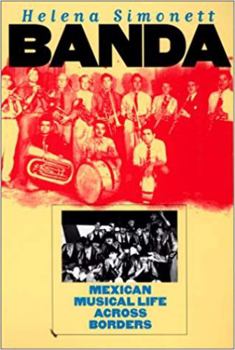Banda: Mexican Musical Life Across Borders
The first in-depth study of banda, a Mexican and Mexican American musical practice.
Runner-up for the International Association for the Study of Popular Music (IASPM) - US Chapter Book Award. (2002)
Banda music has been performed by traditional brass bands in rural northwestern Mexico for more than a century, while technobanda, a newer style that has replaced the brass instruments with synthesizers and electric instruments, has become part of a lifestyle for tens of thousands of young people in the US, particularly in Los Angeles. The young people who flock to technobanda concerts also insist on the use of the Spanish language, a particular etiquette on the dance floor and above all, a specific style of dress: cowboy/cowgirl apparel and belt buckles emblazoned with the name of their home Mexican state.
In this engaging and insightful ethnography, Helena Simonett brings us inside the music and its culture. Her discussions of narco-trafficking and narco-corridos ballads reveal the interconnected roles of musical, commercial and criminal networks, and illuminate how and why musical and social issues become so interconnected for banda artists and audiences. In this richly contextualized analysis of a singularly important contemporary musical style, Simonett sheds new light on how expressive culture both generates and reflects intersecting social identities.





